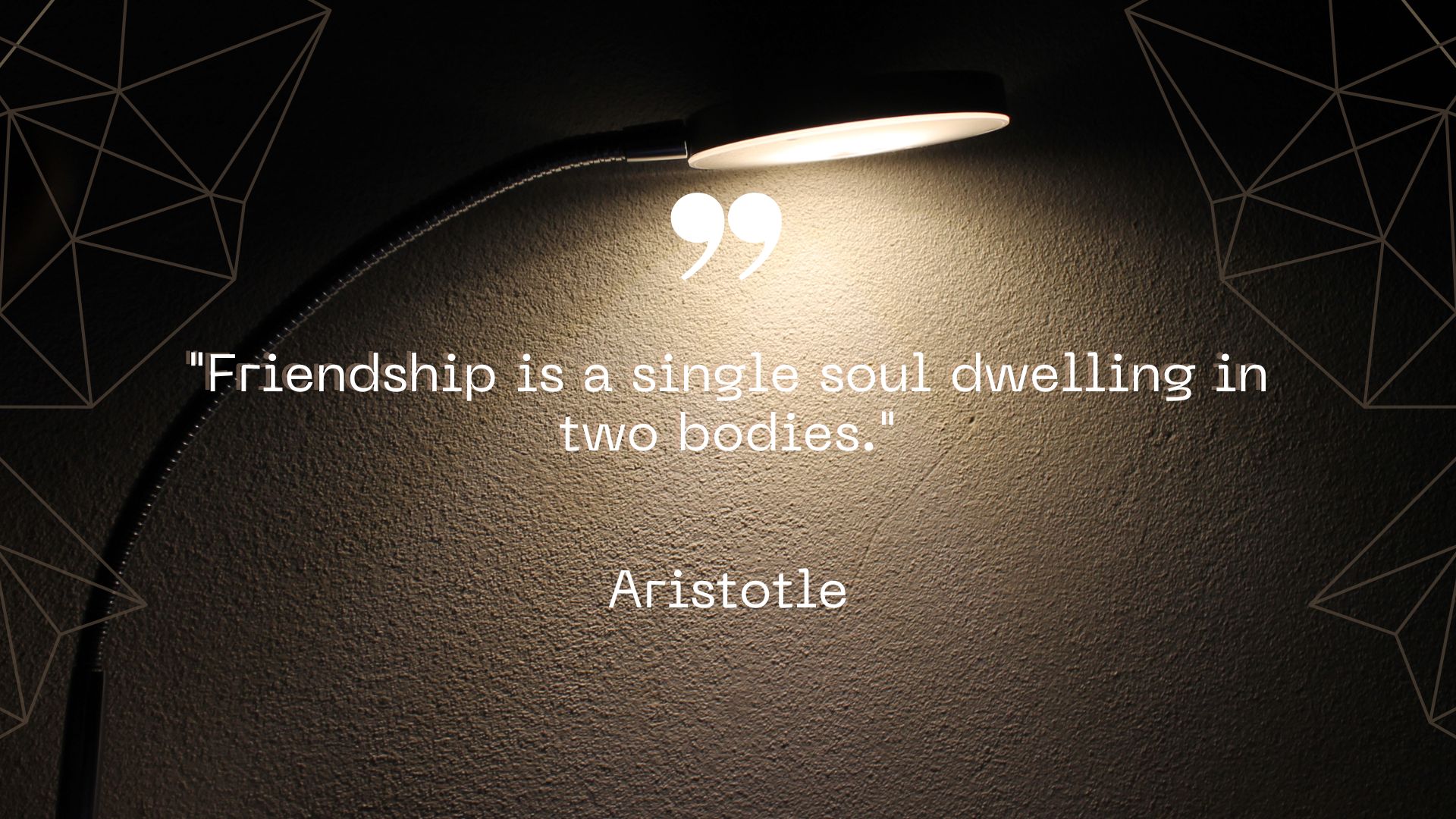“Friendship is a single soul dwelling in two bodies.”
Aristotle—
Aristotle, the ancient Greek philosopher, revered for his profound insights into various aspects of life, philosophy, and human nature, once said, “Friendship is a single soul dwelling in two bodies.” This eloquent quote encapsulates a unique perspective on the nature of friendship and the profound bond it creates between individuals. In this exploration, we delve into the deeper meaning of this quote, shedding light on the essence of friendship as envisioned by Aristotle.
The Essence of Friendship: At its core, Aristotle’s quote portrays friendship as more than a simple connection between individuals. It hints at a profound unity, a merging of souls that transcends the superficial interactions commonly associated with friendships. According to Aristotle, friendship is not merely an exchange of pleasantries or mutual interests, but a profound intertwining of two individuals’ inner selves.
A Unified Soul: By referring to friendship as a “single soul,” Aristotle suggests that true friendship goes beyond the physical realm. It involves a deep understanding and empathy between friends that extends to the very essence of their being. In this interpretation, friendship becomes a state of shared emotions, values, and experiences that bind two souls together in a powerful and harmonious union.
Dwelling in Two Bodies: The phrase “dwelling in two bodies” adds another layer of complexity to Aristotle’s concept. It implies that while each friend maintains their individuality and physical presence, their emotional and intellectual connection is so profound that they become an inseparable part of each other’s lives. This unity of souls bridges the gap between bodies, forming a bridge that transcends the limitations of physical existence.
Mutual Growth and Fulfillment: Aristotle’s notion of friendship as a single soul dwelling in two bodies underscores the idea that true friends contribute to each other’s personal growth and fulfillment. The unity of souls allows friends to uplift, challenge, and support one another in their pursuit of virtue, knowledge, and happiness. In this sense, friendship becomes a catalyst for individual and shared development, where the well-being of one friend is intricately tied to the other.
Conclusion: Aristotle’s profound observation that “Friendship is a single soul dwelling in two bodies” offers a captivating perspective on the nature of friendship. It encourages us to view friendship as a deep, harmonious connection that transcends physical boundaries and unites individuals at a soulful level. In embracing this idea, we can cultivate more meaningful and fulfilling friendships, recognizing the potential for shared growth, empathy, and genuine companionship that extends beyond the superficial.




